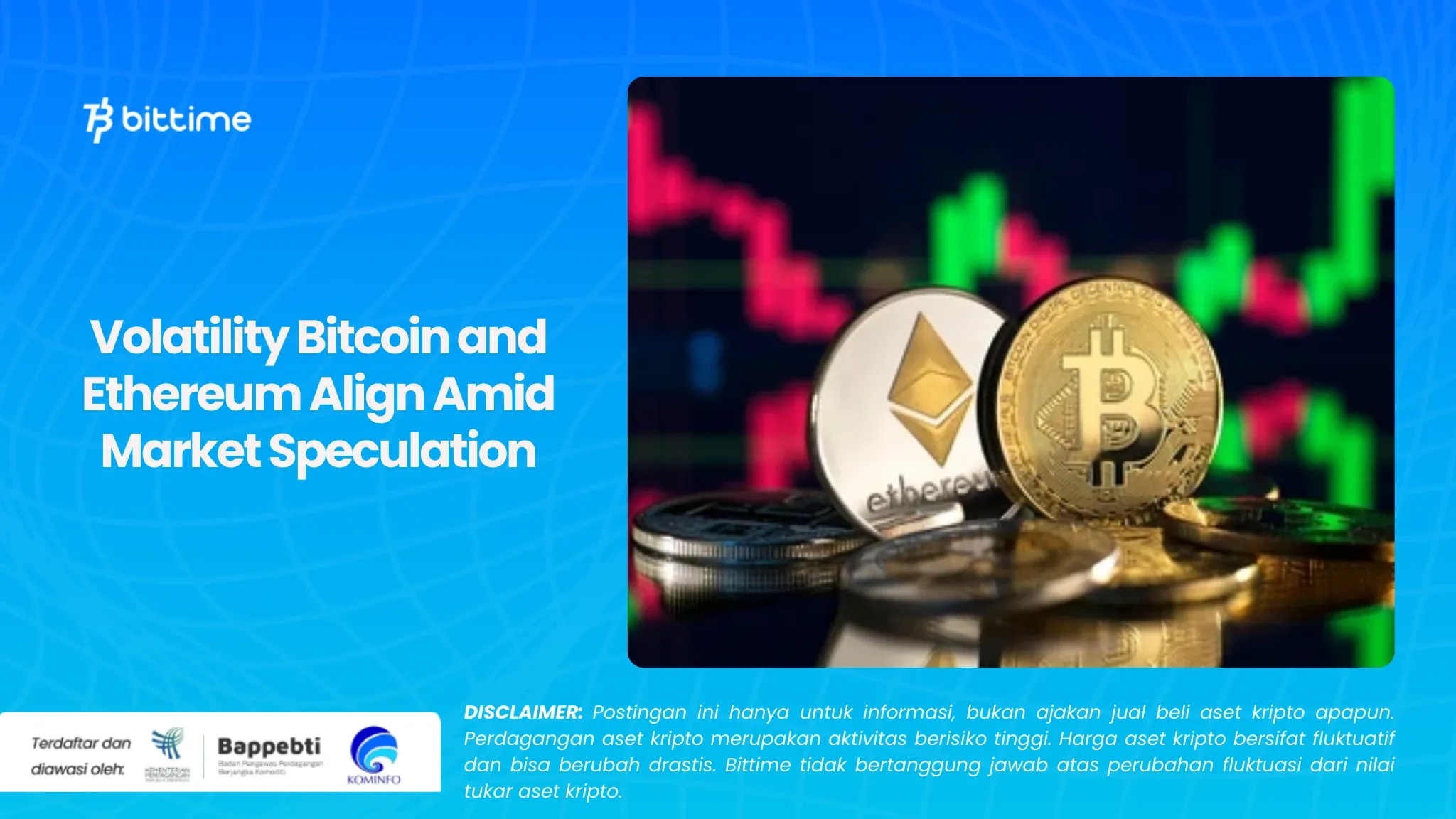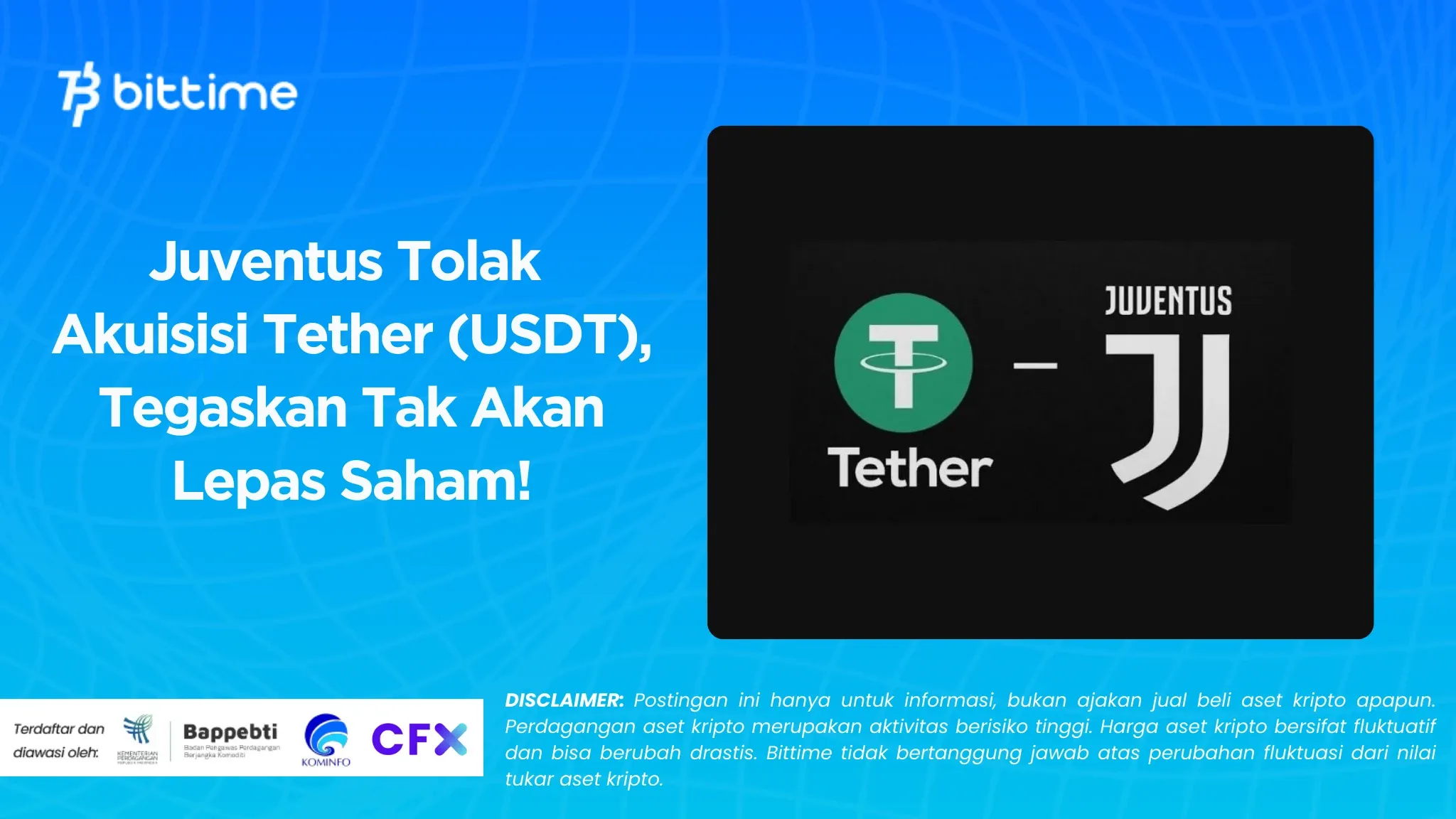Volatility Bitcoin and Ethereum Align Amid Market Speculation
2024-07-23
Bittime - Volatility in the crypto world is always hot news, especially when it comes to the two largest crypto assets, Bitcoin and Ethereum. Matrixport discusses the volatility between these two assets. How’s the comparison and the impact of market speculation on both? Read this article to find out!
Bitcoin and Ethereum Volatility
Volatility is a measure of how much the price of an asset changes in a certain period of time. In the crypto world, volatility is often used as an indicator of risk and potential profit.
Historically, Ethereum is known to have higher volatility than Bitcoin. This is due to several factors, including faster adoption of the technology and various projects running on top of the Ethereum network.
However, Matrixport revealed that currently the realized volatility of Bitcoin and Ethereum is at a ratio of 1.0. This means the volatility of these two assets is the same. This is an interesting phenomenon considering that Ethereum's volatility is usually 50% higher than Bitcoin's.
Market Speculation Ahead of Financial Product Launch
Matrixport also highlights that before the launch of an important financial product, there is usually a lot of speculation in the market. This speculation can influence volatility of crypto assets.
In the case of Bitcoin and Ethereum, the speculation that occurs leading up to the launch of a new financial product can cause significant changes in the volatility of both assets.
Financial products such as ETFs or other derivative products can spark huge investor interest, which can increase trading activity and volatility. This speculation is often driven by the hope that a new product launch will increase the value and adoption of crypto assets.
The Impact of Volatility on Investors and Markets
High volatility is often interpreted as an opportunity for traders to make quick profits. However, for long-term investors, high volatility can also mean greater risk.
With Bitcoin and Ethereum volatility currently on par, investors may see this as an opportunity to re-evaluate their portfolios. When Ethereum volatility is higher, investors may seek refuge in Bitcoin.
However, with parallel volatility, investment decisions may depend more on the fundamentals of each asset. So, understanding the volatility differences between Bitcoin and Ethereum is very important for investors who want to make informed investment decisions.
Bitcoin and Ethereum Fundamental Analysis
Bitcoin is often considered “digital gold” due to its finite nature and role as a store of value. Meanwhile, Ethereum is known as a platform that allows the development of DApps and smart contracts. These fundamental differences make these two assets attractive to different types of investors.
Bitcoin's limited supply and increasing adoption as a means of payment and store of value offers stability in the long term. Meanwhile, Ethereum with its ever-expanding ecosystem offers great growth opportunities through the various projects and technological innovations running on it.
How to Buy Crypto with Bittime
You can buy and sell crypto assets in an easy and safe way through Bittime. over is one of the best crypto applications in Indonesia which is officially registered with Bappebti.
To be able to buy crypto assets on Bittime, make sure you have registered and completed identity verification. Apart from that, also make sure that you have sufficient balance by depositing some funds into your wallet. For your information, the minimum purchase of assets on Bittime is IDR 10,000. After that, you can purchase crypto assets in the application.
Monitor graphic movement price Bitcoin (BTC), Ethereum (ETH), Solana (SOL) and other cryptos to find out today's crypto market trends in real-time on Bittime.
Disclaimer: The views expressed belong exclusively to the author and do not reflect the views of this platform. This platform and its affiliates disclaim any responsibility for the accuracy or suitability of the information provided. It is for informational purposes only and not intended as financial or investment advice.






